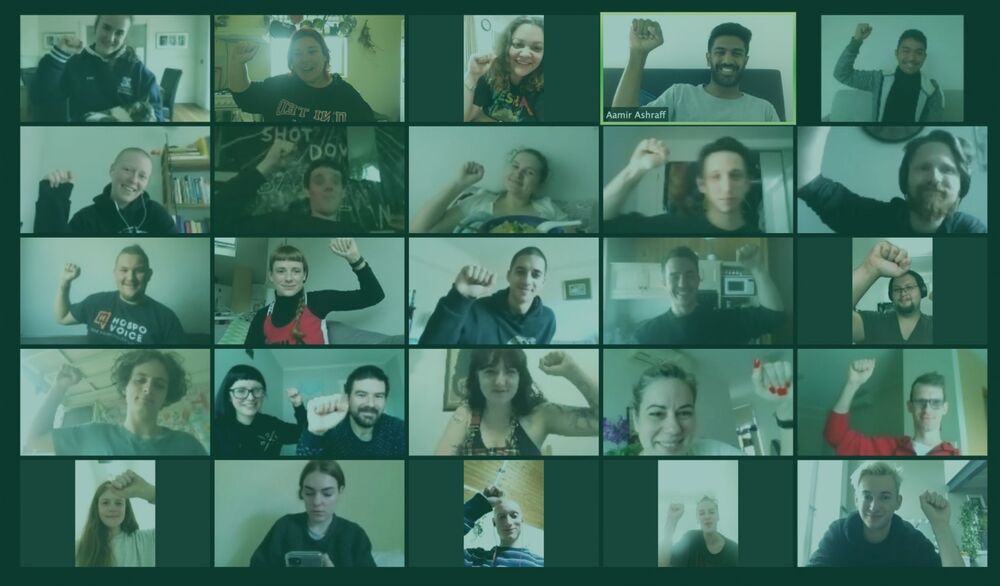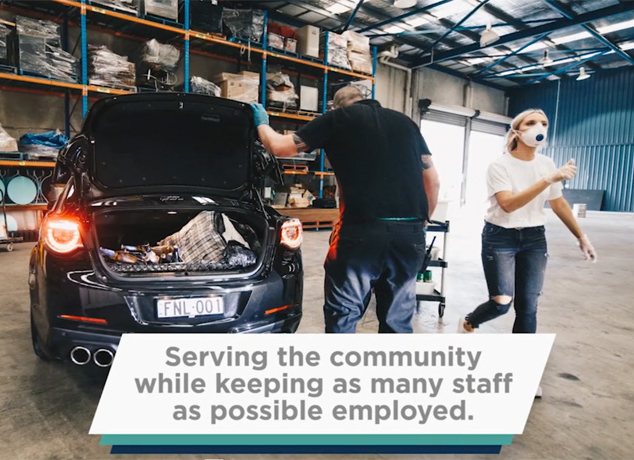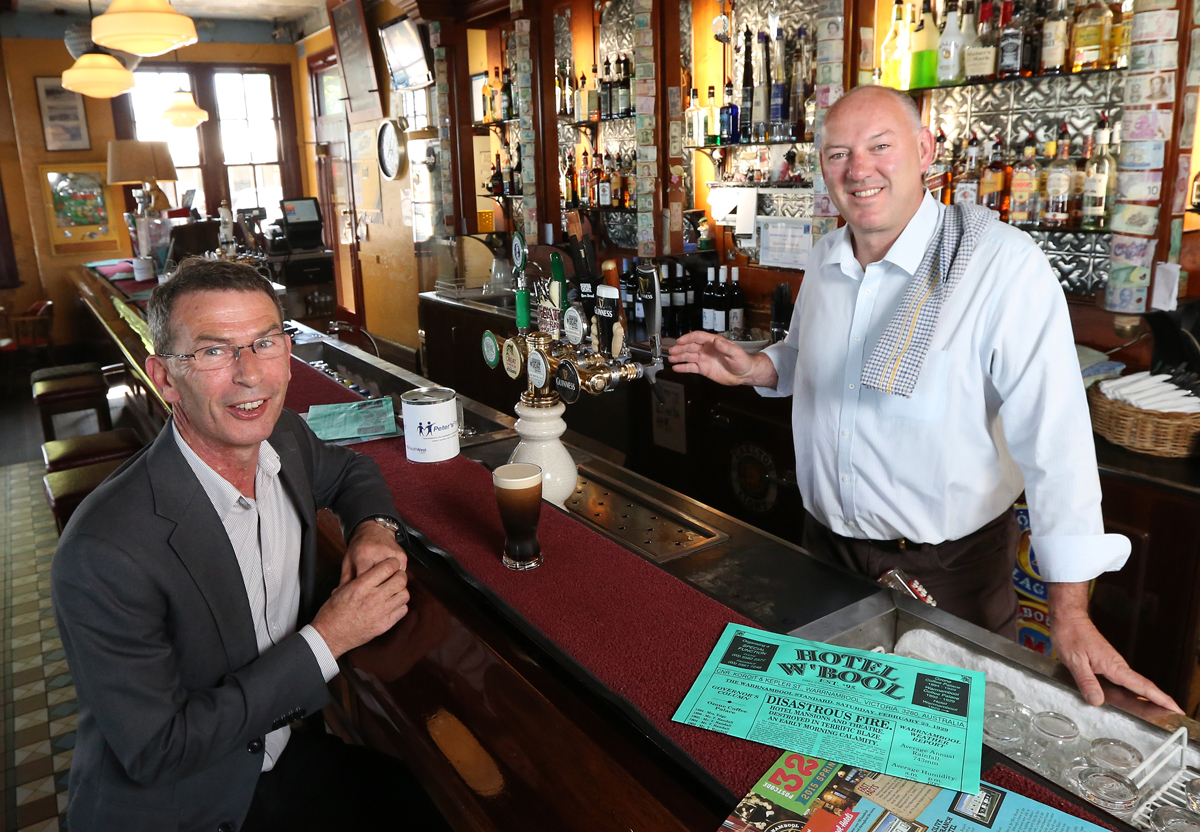Major Feature
STAFF CRISIS
Following the chaos and disruption brought to business and workers by the pandemic, as the pub industry looks toward increasing trade the consequences of the shutdown are being revisited on hospitality venues, seeing displaced staff becoming harder to reemploy and starving businesses risk diminished trade for a new set of reasons.
Clyde Mooney spoke with leading pub groups, employment, training and benefits companies about what operators can and are doing to get the job done.
The hospitality industry has long been plagued with low rates of staff retention. It’s an industry where people tend to come and go – often on their way toward something else, or as a job between jobs.
A massive new development in this problem has been the global pandemic, closing or disrupting businesses and adding further disincentive to employment in the sector.
In recent months most of the pub industry (excepting the unfortunate situation in Victoria) has begun to gradually increase trade again following the mandated shutdown. Heading into the warmer months the need for staff will further increase with patronage, and (hopefully) restrictions will ease further in all jurisdictions, almost certainly leading to a potential crisis in hospitality staff for an industry desperate to get back to work.
THE SITUATION
The once-in-a-lifetime events of this year have drawn with them many secondary consequences, some bringing existential questions on industries such as hospitality. In the immediate, there has been the loss of most of the transient backpacker workforce, who have largely fled back to their countries of origin.
During the COVID-19 shutdown the AHA released data revealing 94 per cent of NSW hotel and pub workers were stood down or terminated. This is 70,452 of the approximately 75,000 hotel and pub workers employed pre-crisis. Sixty-six per cent of these workers, approximately 49,641 people, were stood down and 20,812 put off permanently.
Employees that retained their jobs were predominantly being paid through the Government’s JobKeeper economic support program, while those laid off became eligible for the boosted JobSeeker program, which was around double the usual unemployment benefits and unlike the regular system did not require beneficiaries to actually seek employment.
There was suggestion the amount being paid in JobSeeker made
more employers feel comfortable about laying off staff rather than jumping through the JobKeeper hoops. But conversely, some say the comfortable no-conditions fortnightly payments have made it easy for employees to put off a return to work.
Add to this situation the evolving relationship with millennials hitting the job market of today. It’s said this is a generation that wants things “fast and quick” and is looking fairly regularly at moving from one job to another; a recent Gallup report on the millennial generation found 21 per cent say they've changed jobs within the past year, which is more than three times the number reported in other age groups.
The fact is many hospitality employees have not received support and have been forced or chosen to pivot to alternative industries in the wake of COVID-19, finding work stocking shelves or driving vehicles in industries where there has been a surge of employment. These new jobs may also address ongoing issues of low job security in hospitality, and maybe lessen fears of contracting the virus. When demand returns in hospitality this transfer of staff from the sector will certainly affect labour supply.
The new environment further exacerbates what Merivale suggests is the long-term trend of insufficient skilled workers in many aspects of hotels, most especially in the kitchen.
“While unemployment may be higher, the skills shortage in some key roles continues to be a real concern for the hospitality industry,” offered a spokesperson for the group.
Already many larger pub groups are experiencing some issues getting sufficient staff to cover all positions, particularly as they get busier again. Tom McAll of HospoHire spoke of a meeting with one of Sydney’s largest hospitality venues, which had identified a major shortfall and was looking to source 150 staff quickly.
“We’ve never seen such a high level of demand for staff in one recruitment drive … the demand is certainly ramping back up from what we are seeing.”
Major Feature

Hunt Hospitality operates a suite of pubs in the NSW central coast region. Front man Stephen Hunt is known for his proactive approach to staff management and thus far hasn’t had any difficulty getting sufficient numbers. The group reports while the environment has certainly brought pressures, the team has been “really responsive” to inclusion in the ongoing communication.
“We employ like-minded people whose mission is to make people’s days,” says operations manager Ricci-Lee Wheeler. “At times it’s hard to stay true to our purpose with such a heavy focus on compliance, but we have not seen our teams moving to other industries.”
Some large hospitality employers who report not having had problems also cite focus on creating employment opportunities through new business opportunities, which has bolstered retention.
WHAT STAFF NEED
Hospo Voice is the hospitality arm of the massive United Workers Union. It surveyed 1,150 workers across the industry (including pubs) at the height of the pandemic; coming so soon after the bushfires, the results demonstrated how exposed the workforce continues to be.
The survey found 60 per cent of the hospitality workforce had been stood down without pay or lost their jobs. A further 25 per cent were on reduced hours. Four out of five workers were casual and nearly half (47.5 per cent) of these did not have enough savings to cover rent, food and bills, effectively forced into poverty overnight.
The survey found: 35 per cent had to borrow money from friends or family, 32 per cent had to access super, 30 per cent had to ask for a rent reduction or deferral, 20 per cent had to go without essentials, 12 per cent needed help from a charity or foodbank, 10 per cent had to move out of their house, and seven per cent suffered a relationship breakdown.
Even before COVID-19 shook the world many employees in hospitality were becoming increasingly aware and dissatisfied with aspects of their work, most often around hours and working conditions, underscored by the socially unpalatable problem of employers underpaying. The movement gave rise to venue rating website fairplate.org.au, where hundreds of workers around Australia have spoken out in the quest to hold employers to higher standards, which the Union suggests could prove valuable insight.
“There is a real opportunity for good employers to step up and lead,” offers Hospo Voice spokesperson Karma Lord.
“Employers that want to attract and retain good staff need to pay their staff properly and treat them with respect.
“Hospo Voice members are determined to make sure COVID-19 a turning point for this industry; where we can finally start to build a better industry, based on fair pay, secure jobs, and respect.”
Stephen Hunt is himself a third-generation publican, and looking at a half-century in the game of life in not too many years. He believes today’s youth have more pressure on them, and the relentless eye of social media. He has observed coping mechanisms he acknowledges are a “little different” to his own and sees some finding the crisis a bit more difficult. He felt his group had to ‘get on top’ of any problems, for the sake of the individual and the whole.
“The way we look at it is, the more we do, the better they’ll perform and the better the team is,” says Hunt. “We truly do want everyone we have in our team. We have a strong ‘no-dickhead’ policy, so we look at it as why wouldn’t you look after them, if you want the best from them.”
Last year Hunt Hospitality set up an employee assistance program in association with Newcastle outfit Newpsych, which has access to psychologists all up the north coast. Notices were put in the team newsletter offering confidential help from Newpsych if it was needed. The program was beginning to see traction, and this has been accelerated by the pandemic.
The arrangement is that the group pays for three consults for a staff member. As per advice, the psychologist will typically know by the second session if the person needs ongoing help, at which point they are trained to get them into the public health system.
The realisation ‘we’re all in this together’ has brought some teams closer, finding a sense of comradery in their frontline brotherhood. This has frequently translated into a strong sense of duty in operational compliance, on behalf of the business and the industry as a whole.
Indeed some positives have transpired; some staff working less hours than usual have spoken of the opportunity to connect more and find better balance in external pursuits to work, benefitting relationships, fitness, health, study and more.
But enjoying downtime must usually be coupled with financial surety, and with JobKeeper set to be scaled back at the end of the month many hospitality workers will again face financial issues. Many were forced to turn to their super for financial support even with the full support payments, compounding concerns about long-term security.
“Between January and July this year, super contributions for hospitality staff at Intrust Super dropped 61 per cent,” reports Brendan O’Farrell, CEO of hospitality specialist Intrust Super, who believes financial security will become a big consideration for jobseekers in a post-COVID world.
“That’s a pretty clear indication that people in the hospitality industry are currently doing it tough. So, it’s understandable that financial security has jumped to the top of the priority list for a lot of people in the industry.”
Major Feature
Major Feature

DURING THE PANDEMIC
Where possible, much of the workforce were eager to return to previous employment. Some groups tweaked the roles of many employee – food and beverage attendants, chefs, even management – to assist with tasks such as cleaning, delivery driving, painting and strategizing. This diversification reportedly allowed employees to return to work far quicker.
The disruptions across society ultimately produced obstacles, particularly around the revision to school hours and at-home learning, forcing parents to find alternative arrangements. Greater flexibility in working arrangements was needed to accommodate these staffers.
Initially some employees (typically over 50s) were genuinely concerned about the possible health effects of the virus. Increased hygiene measures were adopted back of house as well as front to help ensure these employees were comfortable, and again flexible working arrangements were adopted, allowing some jobs to be carried out in off-hours, facilitating minimal contact and social distancing.
Hunt Hospitality went further to consider alternative skillsets in their staff, and after getting legal assurance put it to the team.
“We asked, what are some other skills you might have, and would you be prepared to do them at work?” relays Hunt. “A lot of them filled out a survey. We got one young fella who’s helping us with employment management incentive programs and he’s also into marketing, so he’s been coming in and helping us boost marketing stuff.
“We wouldn’t have known previously that these staff had these skills.”
In the height of the shutdown some larger groups chose to invest in financial support of their staff, realising the potential long-term benefits. Australian Venue Co. initiated its ‘Meals for Hospo Mates’ in-house support program for employees and their families, and furthered it when Melbourne venues shut their doors for the second time. AVC also created a $100k+ financial hardship package helping visa workers not entitled to government assistance.
Similarly, Merivale went above and beyond government support, both financially and in providing reassurance.
“During the first phase of COVID-19, the Merivale Benefits Programme provided immediate financial relief to all eligible staff and also provided the opportunity for those team members experiencing significant hardship to access further support,” explained a spokesperson.
“As we continue on the road to recovery, regular communication and supporting resources to our team is our priority. There is so much information out there it gets confusing, so keeping in touch with our team is crucial.”
Marcello Colosimo’s Momento Group was one of those that swiftly found alternate business and ways to utilise and employ staff, launching pseudo supermarkets in drive-though bottleshops. What began largely selling toilet paper to locals when supermarket shelves were bare evolved to offer all manner of goods not normally sold by the pub, and variations on many things that were normally sold, from packaged meals to pre-batch cocktails.
Momento reports staff were very adaptable. The pandemic trading sees all staff required to log-in the same as customers, and to have their temperature checked. A mandatory mask policy has been implemented for all kitchen and front of house staff. Far from the employees, the biggest challenge is said to have come policing COVID regulations with customers, sometimes inclined to stand and mingle and ignore directions. Unfortunately, this has led to several “frustrating” 1-star reviews.
The group reports team culture is “super important” and has communicated to the teams using Facebook groups for several years. The system has paid dividends through the tough times, clarifying and communicating group values – known as ‘The Momento Way’ – to structing reward mechanisms, such as the ‘Wheel of Wonder’ that every week recognises a team member in each venue displaying and living one or more of the group values, and ‘Star of the Month’ where one employee is recognised and awarded, getting their name on a perpetual trophy and receiving a $500 debit card.
“These systems help to keep the team cohesive during this challenging business environment,” says group GM Jason Jelicich. “While these don’t sound like ‘new’ initiatives in the face of COVID, they are systems we planted and have nurtured for a number of years now, and enable us to reap the rewards when the business was turned upside down.”
ON THE HORIZON
One of the great challenges of the current situation is that no-one is an expert. Almost every day we become aware of something new we realise we didn’t know, nor even that we would someday need to know. Some insights are being teased from the symbiotic relationships seen in some businesses, but likely the passage of time will change things further as the dust settles.
Hunt has seen a staff preferential move toward short, sharp shifts, and speculates there may be significant further adaptations as unemployment rates increase unevenly across the population.
“It will be interesting to see the workforce change. I believe we may even see older people coming back into hospitality as they may have been laid off from other sectors and need the work. This was the trend after 2008, during the GFC.”
Momento is addressing the situation head-on, which has involved engaging the services of employment specialist firm HospoHire. The founders of HospoHire worked in bars and saw first-hand the continual challenge of finding staff. Eyeing friends applying for corporate positions and being subjected to psychometric tests, the principle was applied to hospitality.
The strategy is to give the employer access to an ongoing supply of candidates. This starts with notifications in the likes of university campuses and markets as well as the venues and its social media. Initial applicants are given a toned-down version of the corporates tests, first determining details and experience, asking trade-specific questions to test knowledge, then a general character assessment on role-orientation. It automatically does reference checks, emailing referees, and collates information and presents to the employer in a dashboard.
Major Feature
“It’s a whole new way of having an ongoing portfolio we hope will solve a lot of issues,” says Jelicich.
“We need to be more creative and innovative when looking to hire new staff. Ads on Seek and having staff ask their friends won’t cut in in the months and years to come.”
To this end Momento is one of those looking at the airline industry; hosties, ground crew even pilots have all been displaced, and beneficially, are already highly customer-centric.
The Federal Government recently conducted the Tourism and Hospitality Labour and Skills Roundtable, taking stock of all current initiatives through governments and industry around tourism and hospitality issues. The Roundtable is currently considering recommendations to address:
- Enhancing higher education, vocational education and training outcomes
- Strategies aimed at improving career perceptions and promoting tourism and hospitality industry career pathways
- Strategies to enhance the uptake of existing programs
- Harnessing alternative labour and skills sources, including youth and mature-age workers
- Regional approaches to labour and skills issues
- Assessing how the industry can build a pipeline of foreign workers by better utilising the permanent and temporary migration programs
Le Cordon Bleu (LCB) is one of the world’s leading hospitality trainers. In July, in response to the pandemic, it announced 50 per cent scholarships on its 13 Higher Education (HE) Certificates, both at the
HE Certs such as Food & Beverage Management are seen as favourable for pubs. TAFE has many micro-credentialing courses to suit f&b staff, such as in wine, spirits and beer, and many more in areas such as leading teams, administration skills, business and more.
Another specialty hospitality training provider is AVTES, which offers industry-specific apprenticeships and traineeships.
Until the end of September, AVTES is providing a suite of Cert III and Cert IV training opportunities at no charge. This applies to students eligible for government funding – there will be no fee charged to the employer or student.
“With the looming staff shortage predicted for the hospitality industry, now is the perfect time to be looking at developing your own dream team through in-house training,” suggests Chris Fitzgibbon, AVTES managing director.
Next month, in Part Two of Staff Crisis, we will be discussing in far greater depth the range and suitability of training services available, as well as systems to help find and hire the new staff to be trained. We’ll look at the career prospects and benefits being demonstrated to attract hospitality workers, and what things groups are doing to keep staff in the job.

AVTES Chris Fitzgibbon & Steve Philpot, publican of Hotel Warnambool




